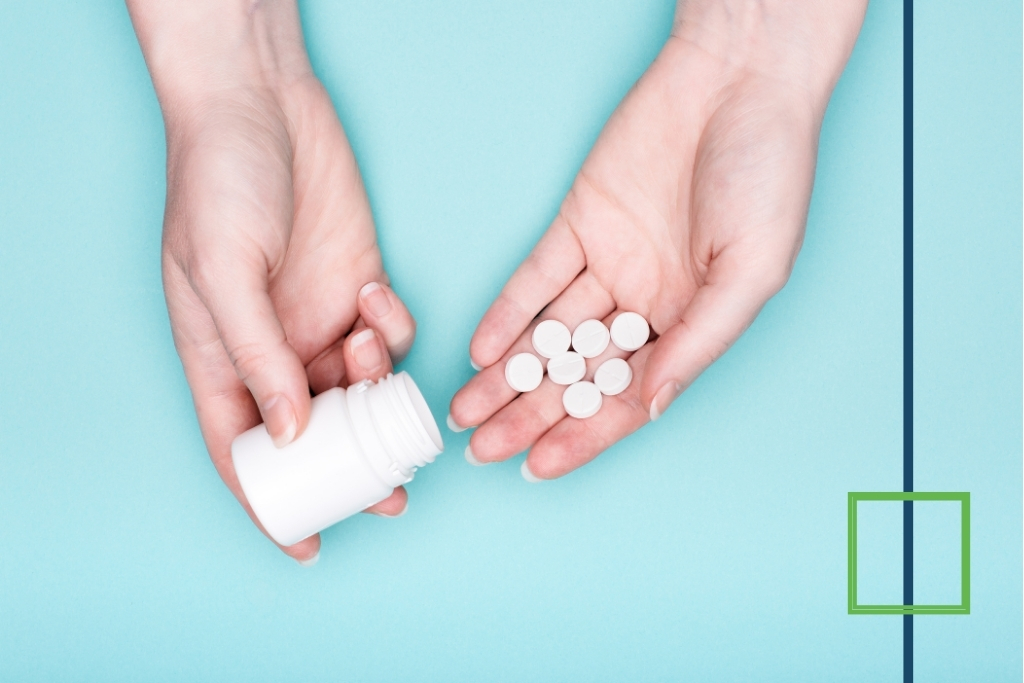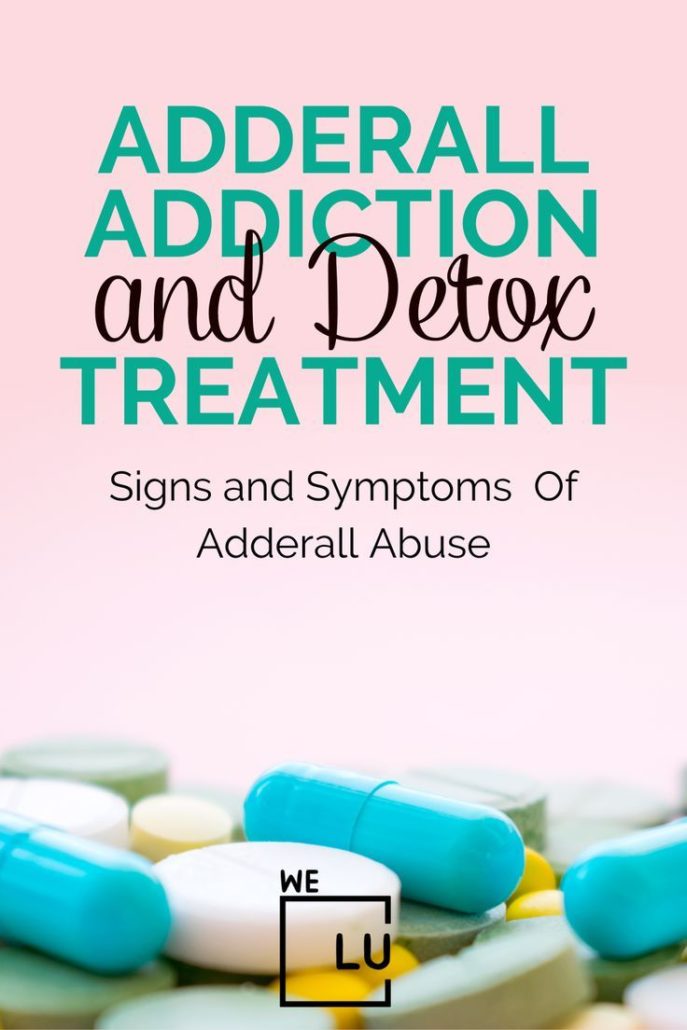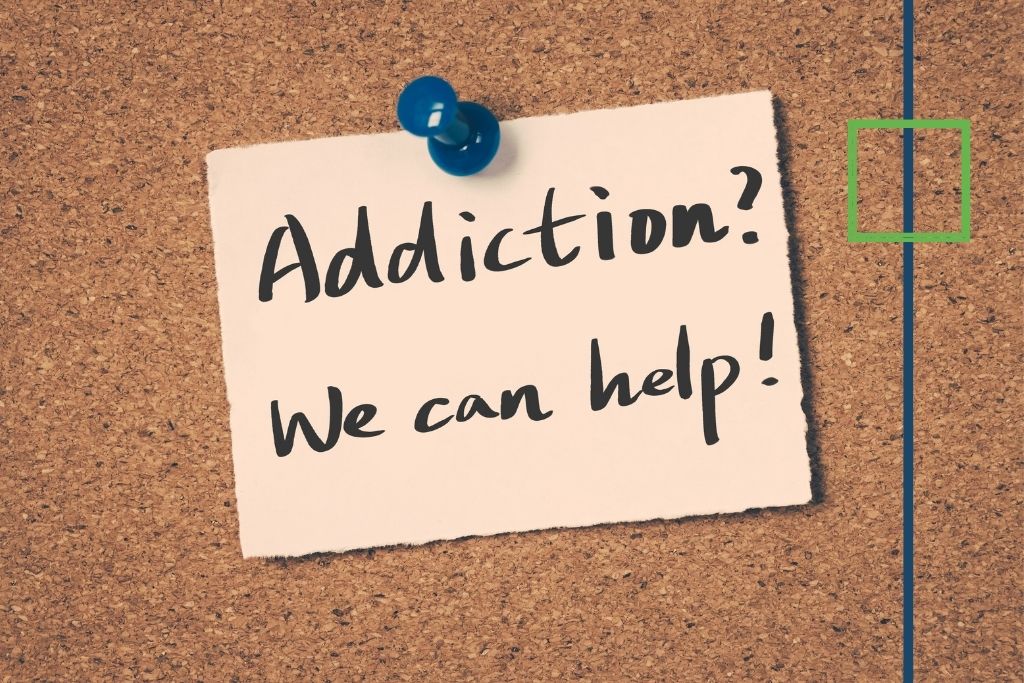What Is Adderall?
Adderall is a brand name for the combination of dextroamphetamine and amphetamine. It’s a prescription drug used principally to treat ADHD or narcolepsy (daytime sleepiness). The medication adjusts certain naturally occurring chemicals in your brain by enhancing the effects of neurotransmitters such as dopamine and norepinephrine. However, the combination of dextroamphetamine and amphetamine can be habit-forming and may cause Adderall addiction.
Dextroamphetamine/amphetamine belongs to a class of drugs known as central nervous system stimulants. The Drug Enforcement Administration/Food and Drug Administration classifies these medications as schedule II drugs with a high potential for abuse in the United States.
Immediate-release and sustained-release amphetamine medications are FDA-approved to treat ADHD and narcolepsy in both adult and pediatric populations. Non-FDA-approved clinical uses for dextroamphetamine/amphetamine include cerebrovascular accidents. [1] Cerebrovascular accident (CVA) is the medical term for a stroke.
Dextroamphetamine Effects In Adderall Addiction
Dextroamphetamine is a synthetic substance related to natural sympathomimetic amines and the artificial agent amphetamine. In the central nervous system (CNS), dextroamphetamine causes the release of dopamine within the mesocorticolimbic system, a significant component of the brain reward system, resulting in measurable behavioral changes such as euphoria. As a CNS stimulant, this agent may raise blood pressure and reduce appetite. Like other amphetamines, dextroamphetamine has a high potential for abuse, dependence, and addiction if used in high doses over extended times. [2]

Amphetamines Effects In Adderall Addiction
Amphetamines are non-catecholamines, sympathomimetic amines with central nervous system (CNS) stimulant activity. Amphetamines increase dopamine and norepinephrine in the synaptic space by elevating catecholamines from the presynaptic nerve terminals. They also block norepinephrine and dopamine reuptake into the presynaptic neuron by competitive inhibition—released norepinephrine affecting alpha-adrenergic and beta-adrenergic receptor sites.
Amphetamines are DEA Schedule II controlled substances with a high potential for misuse and dependence. Avoid administration for extended terms as it may lead to drug dependence. Particular attention should focus on the possibility of cases obtaining amphetamines for non-therapeutic use. Therefore, the drug should not be distributed to others, and healthcare professionals should prescribe or dispense the medication sparingly.

Skip To:
Learn more:
- Opiate Addiction Treatment
- Can You Smoke Adderall? Dangers & Effects of Adderall Addiction
- Adderall Addiction Signs
- 30 mg Adderall – Effects and Risks of Addiction
- How To Take Molly Safely? The Facts of Molly Addiction
- Is Molly Addictive? Symptoms and Risks of Molly Addiction
- KC M20 Pill, Risks, Uses, & Addiction Treatment
- How To Identify Fake Meth, Risks & Effects of Addiction
- Round Adderall T 375 Pill Risks & Side Effects
Adderall Fact Sheet
Adderall
Adderall contains a combination of amphetamine and dextroamphetamine.
Amphetamine/dextroamphetamine is used in the treatment of ADHD; narcolepsy and belongs to the drug class CNS stimulants. Risk cannot be ruled out during pregnancy.
Amphetamine/dextroamphetamine 20 mg is classified as a Schedule 2 controlled substance under the Controlled Substance Act (CSA).
Amphetamine and Dextroamphetamine
Availability: Prescription only
Drug Class: CNS Stimulants
Pregnancy Category: C – risk cannot be ruled out
CSA Schedule2 – High potential for abuse
What are Amphetamines?
Amphetamines are stimulants that speed up the
body’s system. Some are legally prescribed and used to treat attention-deficit hyperactivity disorder (ADHD)
What is their effect on the mind?
The effects of amphetamines are similar to cocaine, but their onset is slower, and their duration is longer.
In contrast to cocaine, which is quickly removed
from the brain and is almost completely metabolized, methamphetamine remains in the central nervous system longer, and a larger percentage of the drug remains unchanged in the body, producing prolonged stimulant effects.
Chronic abuse produces a psychosis that
resembles schizophrenia and is characterized by
paranoia, picking at the skin, preoccupation with one’s own thoughts, and auditory and visual hallucinations. Violent and erratic behavior is frequently seen among chronic users of amphetamines.
Adderall Abuse Statistics
Stimulant prescriptions are quite common in the United States. About 16 million U.S. adults take one of these medications, with approximately 5 million having misused a prescription at least once. More than 56% of those who misuse stimulants report doing so because they wanted the benefits of the drugs’ cognitive enhancement. People in stressful school and work environments often abuse prescription stimulants to increase their productivity, without realizing the drugs can be addictive.
2.1%
2.1% of males and 1.6% of females misuse prescription stimulants.
Source: NIDA
5.7 to 8.9
5.7 to 8.9 of males and 1.6% of females misuse prescription stimulants.
Source: NIDA
59 million or 21.4%
59 million or 21.4% of people 12 and over have used illegal drugs or misused prescription drugs within the last year.
Source: NIDA

Get Your Life Back
Find Hope & Recovery. Get Safe Comfortable Detox, Addiction Rehab & Mental Health Dual Diagnosis High-Quality Care at the We Level Up Treatment Centers Network.
Hotline (877) 378-4154Adderall Addiction Effects On The Central Nervous System
When prescribed and taken as advised, Adderall’s effects on the central nervous system can positive impact. For instance, you may be more attentive during the day and become more focused and calm.
Potential Side Effects
- Nervousness
- Restlessness
- Headaches
- Problems getting to sleep or staying asleep
- Dizziness
- Dry mouth
- Hoarseness
- Slowed speech
- Changes in vision
Severe side effects include fever and weakness or numbness of the limbs. In addition, an allergic reaction to Adderall may cause swelling of the tongue, throat, or face. This is a medical emergency and should be treated immediately.
Other Serious Side Effects Include:
- Uncontrollable shaking, tics, or seizures
- Hallucinations, paranoia, and other thought problems
- Worsening mental health conditions, such as depression or anxiety
If you experience any of these symptoms, you should contact your doctor immediately.
Get Help. Get Better. Get Your Life Back.
Searching for Accredited Drug & Alcohol Rehab Centers Near You? Or Mental Health Support?
Even if you have failed previously, relapsed, or are in a difficult crisis, we stand ready to support you. Our trusted behavioral health specialists will not give up on you. Call us when you feel ready or want someone to speak to about therapy alternatives to change your life. Even if we cannot assist you, we will lead you wherever you can get support. There is no obligation. Call our hotline today.
FREE Addiction Hotline – Call 24/7Adderall Addiction Withdrawal Symptoms
Adderall addiction or overusing the drug, then stopping abruptly can cause symptoms of withdrawal, such as:
- Feeling uneasy
- Sleep problems, whether insomnia (trouble falling or staying asleep) or sleeping too much
- Hunger
- Anxiety and irritability
- Panic Attacks
- Fatigue or lack of energy
- Depression
- Phobias
- Suicidal thoughts
What are the signs of Adderall addiction?
The Adderall addiction side effects include restlessness, confusion, and depression.
What are Adderall addiction symptoms?
If you are wondering “am I addicted to Adderall?” or “what does Adderall addiction look like?”, the answer is the symptoms of Adderal addiction include being very chatty, a decrease in appetite, abnormal excitement, social exclusion, financial difficulties, aggression, spending a lot of time asleep, & secretive actions. These addicted to Adderall symptoms and addiction to Adderall symptoms are all important to keep in mind since they are some of the first signs to look out for.
First-class Facilities & Amenities
World-class High-Quality Addiction & Mental Health Rehabilitation Treatment
Rehab Centers TourRenowned Addiction Centers. Serene Private Facilities. Inpatient rehab programs vary.
Addiction Helpline (877) 378-4154Proven recovery success experience, backed by a Team w/ History of:
15+
Years of Unified Experience
100s
5-Star Reviews Across Our Centers
10K
Recovery Success Stories Across Our Network
- Low Patient to Therapist Ratio
- Onsite Medical Detox Center
- Comprehensive Dual-Diagnosis Treatment
- Complimentary Family & Alumni Programs
- Coaching, Recovery & Personal Development Events
Overdose Symptoms Of Adderall Addiction And Misuse
In case of overdose, if the victim has collapsed, had a seizure, has trouble breathing, or can’t be awakened, immediately call emergency services. [3] Yes, a person can overdose on prescription stimulants such as Adderall. An overdose happens when the person uses enough of the drug to produce a life-threatening reaction or death.

Symptoms Of Overdose Include:
- Restlessness
- Confusion
- Aggressive behavior
- Feelings of panic
- Hallucination (seeing things or hearing voices that do not exist)
- Fast breathing
- Uncontrollable shaking of a part of the body
- Fever
- Dark red or cola-colored urine
- Muscle weakness or aching
- Tiredness or weakness
- Depression
- Fast or irregular heartbeat
- Fainting
- Dizziness
- Blurred vision
- Upset stomach
- Vomiting
- Diarrhea
- Seizures
- Coma (loss of consciousness for some time)
How Do People Misuse Prescription Stimulants Like Adderall?
Most prescription stimulants come in tablet, capsule, or liquid form, which a person takes by mouth. Misuse of a prescription stimulant means:
- Taking medication in a way or dose other than prescribed
- Taking someone else’s medication
- Taking medication only for the effect it causes—to get high
When misusing a prescription stimulant, people can consume the drug in its standard form. Alternatively, they can crush tablets or open the capsules, dissolve the powder in water, and inject the liquid into a vein. Some can also snort or smoke the powder. [4]
The brain of an addicted person is dependent on Adderall to stimulate alertness and productivity. Without Adderall, addicted people often feel tired and mentally foggy. These are symptoms of Adderall withdrawal, a vital sign of an Adderall addiction. [5]
Adderall Addiction ADHD
By lowering impulsivity and enhancing focus and attention, Adderall has an impact on ADHD. By increasing the levels of dopamine and norepinephrine in the brain, Adderall benefits persons with ADHD by boosting the central nervous system’s activity.
Clinically diagnosed ADHD sufferers have dopamine-deficient brains. ADHD symptoms can be reduced by stimulants like Adderall, which raise dopamine levels in the brain. Among the issues that may be caused by ADHD are:
- Organization
- Task completion
- Concentration and focus
- Listening and following directions
- Hyperactive behaviors
- Short attention span
World-class, Accredited, 5-Star Reviewed, Effective Addiction & Mental Health Programs. Complete Behavioral Health Inpatient Rehab, Detox plus Co-occuring Disorders Therapy.
CALL (877) 378-4154End the Addiction Pain. End the Emotional Rollercoaster. Get Your Life Back. Start Drug, Alcohol & Dual Diagnosis Mental Health Treatment Now. Get Free No-obligation Guidance by Substance Abuse Specialists Who Understand Addiction & Mental Health Recovery & Know How to Help.
Detoxifying Your Body From Adderall Addiction
Adderall addiction is a complex issue that requires long-term treatment – not a quick fix. Therefore, the first step in overcoming Adderall addiction is to seek help from your medical provider or a trained professional.
Clearing prescription drugs from the body and overcoming withdrawal symptoms is the goal of detox, which is the first step of treatment for Adderall addiction.

For anyone who suffers from Adderall addiction, just the thought of having to stop using can cause severe mental distress. Given that, the medical detox process is managed with the help of a medical detox center. In addition, a comprehensive team prescribing medications can alleviate your withdrawal pains while monitoring your health 24 hours. Thus, assuring both your safety and comfort. [5]
At We Level Up NJ, our thorough approach to Adderall addiction rehabilitation supports several levels of care to ensure the best possible outcome for every client who enters our doors.
Most Popular Adderall Addiction FAQs
-
How addictive is Adderall?
Amphetamines like Adderall are classified as Schedule II controlled substances by the US Drug Enforcement Agency (DEA), which means there is a high risk of addiction or misuse. Thus, if you are wondering, “is Adderall addictive?”, the answer is yes, Adderall addictive.
-
Is addiction to Adderall deadly?
Addicted to Adderall? Adderall abuse or regular use can alter the brain’s structural makeup and how emotions are controlled. They may also be detrimental to the vascular system, heart, lungs, and other internal organs. Even a single use of Adderall has the potential to cause a toxic overdose or rapid cardiac death.
-
Can you get addicted to Adderall?
If you are wondering, “can you be addicted to Adderall?”, “can Adderall be addictive?”, or “why is Adderall addictive?”, the answer is even though not everyone who uses Adderall will become addicted, those who consistently take it at doses that are higher than recommended run a higher chance of doing so. Those who use Adderall regularly over time build up a tolerance to the substance and can’t operate normally without it.
-
Is Adderall addictive for ADHD?
If you are wondering, “can someone with ADHD get addicted to Adderall?” or “can you be addicted to Adderall if you have ADHD?”, the answer is because Adderall contains amphetamines, it may create addiction. Due to cultural factors, abuse of Adderall is on the rise nowadays among both persons with and without ADHD. Understanding the telltale signs and symptoms of Adderall addiction is essential if you want to assist a loved one or yourself in getting well.
-
Is Adderall addictive or habit forming?
Not everyone who uses Adderall develops an addiction, but those who take it frequently at doses higher than advised have a higher probability of doing so. Regular Adderall users develop a tolerance to the drug over time and become dependent on it to function normally.
-
Is Adderall addicting?
If you are wondering, “can you become addicted to Adderall?”, the answer is although Adderall can be used successfully by many patients, there is a risk of abuse and addiction to this drug.
-
Will coming off Adderall addiction help my brain return to normal?
After stopping the medicine, a person usually functions normally again within one to three months.
-
How long does it take to get addicted to Adderall?
If you are wondering, “how long does it take to become addicted to Adderall?”, That depends on a number of different things. Because of factors like age, weight, body chemistry, metabolism, the presence of physical and/or mental health issues, other substance abuse, how much is being taken at once, the frequency that it is being abused, and the method of consumption, it may take one person as little as a few days to become addicted to Adderall since Adderall is addictive while it may take weeks for another.
-
What is the connection between alcohol and Adderall addiction?
The cardiovascular system is significantly stressed when Adderall and alcohol are combined, and this can result in short-term problems with hypertension as well as long-term problems with cardiovascular disease and even an increased risk for stroke.
-
How to not get addicted to Adderall?
You can pay close attention to the doctor’s instructions, occasionally take breaks from tolerance, and be aware of the symptoms of dependence and addiction.
Adderall Addiction Recovery in New Jersey
Our addiction Adderall treatment tailors the program to the individual and the individual to the recovery program and recovering from Adderall addiction. We begin by assessing our client’s history of mental health, drugs, and alcohol-related past. The needs of each client are specific and personalized, as we aim to provide comprehensive support for mental health, addiction, and dual diagnosis treatment.
Clients in our residential therapy programs will live comfortably within the facility during this crucial and fragile time. This supportive environment is designed to give patients 24-hour care for sobriety, removing temptations for relapse and applying an air of recovery into every component of the treatment timeline. At We Level Up NJ Treatment Center, we find that when clients are living in a supportive community, especially during their early recovery process, they can truly focus on what matters most: their recovery.
Make this your opportunity to reclaim your life. Call today to speak with one of our treatment specialists. We will help you explore Adderall addiction treatment options. Your call is private and confidential, and there is never any obligation.
Experience Transformative Recovery at the We Level Up Treatment Center.
See our authentic success stories. Get inspired. Get the help you deserve.



Start a New Life
Begin with a free call to an addiction & behavioral health treatment advisor. Learn more about our dual-diagnosis programs. The We Level Up treatment center network delivers various recovery programs at each treatment facility. Call to learn more.
- Personalized Care
- Caring Accountable Staff
- World-class Amenities
- Licensed & Accredited
- Renowned w/ 5-Star Reviews
We’ll Call You
Search We Level Up NJ Adderall Addiction Topics & Resources
Sources:
[1] Dextroamphetamine-Amphetamine – National Center for Biotechnology Information
[2] Dextroamphetamine – National Center for Biotechnology Information
[3] Dextroamphetamine and Amphetamine – The American Society of Health-System Pharmacists / U.S. National Library of Medicine
[4] Prescription Stimulants DrugFacts – National Institute on Drug Abuse
[5] Adderall Addiction – We Level Up – Adderall Addiction – We Level Up FL
DSM-V Substance Abuse Textbook
http://opinionator.blogs.nytimes.com/2013/03/04/the-last-all-nighter/?_r=0 https://www.nlm.nih.gov/medlineplus/druginfo/meds/a601234.html
http://www.nytimes.com/2013/12/15/health/the-selling-of-attention-deficit-disorder.html?pagewanted=all&_r=0